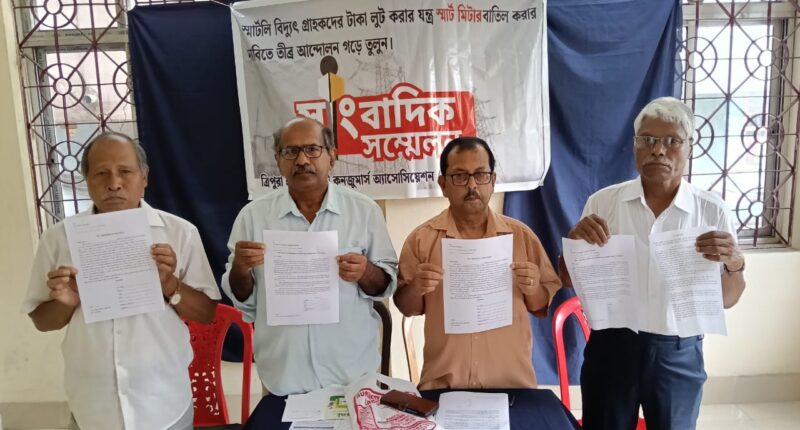Agartala, July 12 – Amid growing public dissatisfaction over inflated electricity bills and deteriorating service quality, the Tripura Electricity Consumers Association (TECA) held a press conference on Friday at Bidurkarta Chowmuhani, Agartala, voicing serious concerns about the state’s power infrastructure and the rollout of prepaid smart meters.
TECA convenor Sanjay Choudhury highlighted multiple grievances, starting with the surge in electricity charges affecting families across the state. “Despite repeated complaints, there’s been no improvement in service quality,” he said.
One of the central issues raised was the controversial installation of prepaid smart meters. Choudhury described them as “tools for systematic financial exploitation,” and called for their immediate withdrawal, citing lack of transparency and increased financial burden on consumers.
Choudhury also pointed to mismanagement within Tripura State Electricity Corporation Ltd. (TSECL). Once a profit-making enterprise (2017–2019), TSECL reportedly slipped into losses after 2019–20, due to operational lapses. Retirement of experienced meter readers and linemen has led to outsourcing, resulting in inaccurate billing and poor rural service delivery.
Official rankings underscore the decline in service, with TSECL falling from 33rd in 2022 to 39th in 2023 among 53 state electricity utilities.
The Association also warned against creeping privatization. It accused the Centre of pushing smart meters to benefit corporate giants like Adani, Tata, and Torrent. Choudhury alleged forced installations of meters, often in the absence of homeowners.
TECA has joined a national campaign against smart meters and privatization, launching a seven-point demand charter and a mass signature drive to be submitted to the Union Power Minister. Forms are also being distributed urging consumers to reject installations and request removal of existing meters.
Citing West Bengal’s suspension of the smart meter rollout, Choudhury urged Tripura to follow suit and protect electricity as a public right, not a profit-driven commodity.










